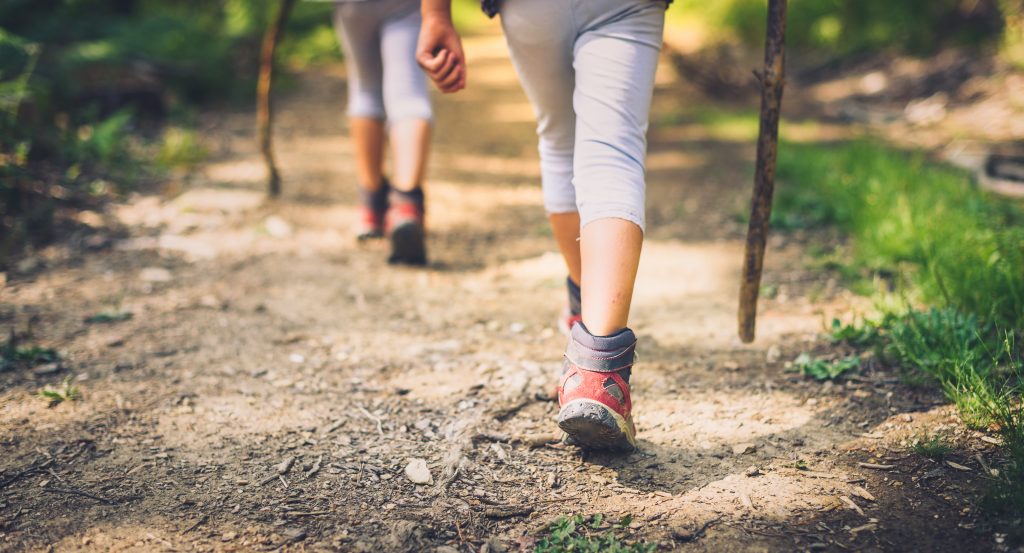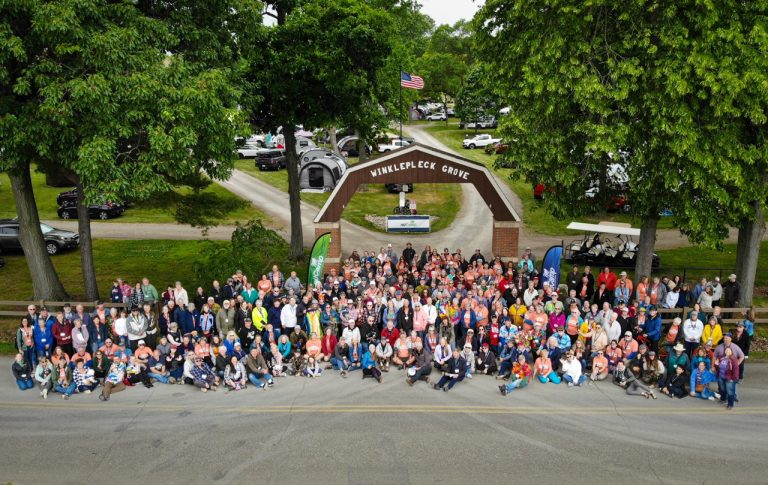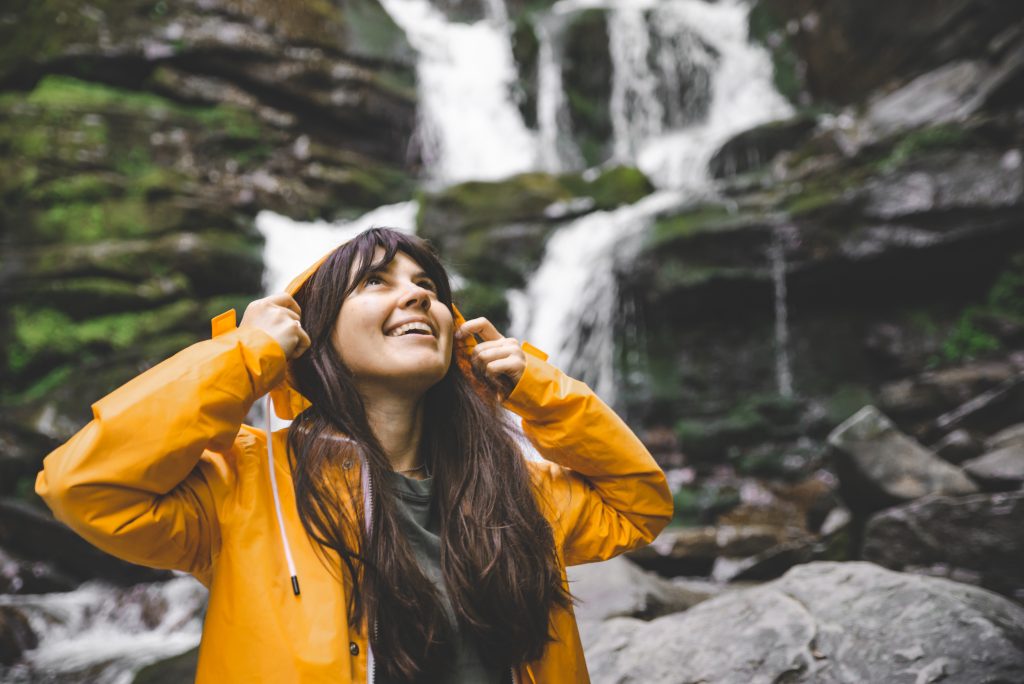July 24 is International Self-Care Day (ISD) — a day that focuses on self-care. And not just the physical side but the mental and emotional aspects. Given the high levels of stress that plague many of us, one day doesn’t seem enough to give us the wellness boost we need. International Self-Care Day’s purpose isn’t just to pamper yourself for the day. It’s to build awareness of the importance of self-care and how to implement self-care practices into your day-to-day life.
Self-care looks a little different for everyone. When you think of self-care, your mind might conjure up an image of soaking in a hot bubble bath with a good book. Or, you might daydream of a day at a spa getting a manicure and a facial. But self-care can also be taking a moment of quiet to go for a walk or taking time away from your busy schedule to enjoy a weekend getaway.
Find self-care outdoors
It’s no secret that being in nature is good for your mental health. Have you ever felt like you could conquer the world on the first warm day after a long, gray winter? Have you ever felt sluggish and sleepy on a rainy day? The weather naturally impacts our moods, and taking some time to enjoy the outdoors can be an easy way to practice self-care.
According to experts, nature offers more than a few benefits that translate to improving our overall health. Spending time outdoors in a natural environment can improve our psychological and physical state while sending those stress hormones packing.
For starters, it helps address what author and journalist Richard Louv called “nature-deficit disorder,” which is the disconnection of people from the natural world. This contributes to less use of our senses along with higher rates of emotional and physical illnesses. It’s a classic case of “you snooze, you lose,” and what we lose is our health and sensory awareness.

Benefits of spending time outdoors
What other benefits does spending time with Mother Nature afford us?
Plenty of fresh air, which can be in short supply in urban environments. When we add some deep breathing exercises, our heart rate slows down, and our blood pressure decreases, helping to create a sense of calm. And by spending time in the sunlight, we may find our mood improving, thanks to a boost in serotonin levels, a chemical produced by our nerve cells that helps regulate feelings. (This can be particularly helpful for those who experience seasonal affective disorder (SAD).)
Another bonus of outdoors is just having the opportunity to immerse ourselves in the environment, says Beyondercamp, without being distracted by the siren call of emails, text messages, and all those streaming services. We want to create memories of what we saw, felt, and experienced, not what calls we took, emails we answered, or movies we watched.
How can you get the maximum self-care effect from your outdoor experience?
First, figure out what you need more of in your life. Is your daily schedule an endless round of appointments and interactions with barely any quiet time? Is your social battery running low? Then head out with your trailer and boondock. Many boondocking locations are remote, so you can have minimal contact with others and enjoy nature’s sights and sounds.
Conversely, if you’ve been spending a lot of time alone, maybe a stay at a campground will help foster a feeling of connectedness. Enjoying a group activity, sharing a potluck dinner, or relaxing with strangers-turned-friends watching the stars come out can help combat your sense of isolation.
Also, think about activities you’ve wanted to pursue, but your overloaded schedule kept getting in your way. Nature can stimulate creativity, so this might be the ideal time to work on your novel or do some plein air painting. Hiking, exploring caverns, or other challenging physical activities can build your self-esteem, setting up a positive feedback loop that encourages you to keep trying new things and expanding your concept of what you can do.
Take small steps to reduce stress
Finally, to maximize the experience, follow these four stress-busting tips.
Do a digital detox. Resist the urge to check your phone regularly. The same goes for your laptop or other devices. If you must check in, set a strict limit on how often and for how long. It may be hard to believe, but humans made it through the day for centuries without text messages, emails, and Zoom calls. You can certainly manage it for most of a twenty-four-hour period!
Slow your roll. Don’t be so excited when you reach your destination that you cram activities into every waking hour. This isn’t a contest to see how much you can do in one day. Instead, take the opportunity to slow down and focus on what is around you. A side benefit is, according to research, exposure to a variety of natural stimuli (as opposed to those found in an urban environment) consistently improves working memory performance.
Engage your senses. You’ve got five: sight, hearing, touch, smell, and taste. Make the most of them when you’re outdoors, recommends Mental Health Foundation. Listen carefully to the calls of the birds, the whisper of the breeze through the leaves, the splash of the water over stones. Feel the rough bark of the tree or the softness of a clump of moss.
Observe your surroundings — and not with just a cursory once-over but by giving a careful examination of everything in your line of sight: the play of light on the water, the silhouette of a bird against the sky, a close-up look at the insects going about their daily labors.
Take a good whiff of the fragrance of blooming wildflowers or, for that matter, the aroma of your dinner cooking on an outdoor grill. And then, when you do eat, take your time and enjoy every mouthful. It’s about being present in the moment rather than thinking about what is next on your to-do list.
Reset your sleep. If you’re like most people, your sleep is probably not as restorative as you would like. We all know the benefit of a good night’s rest. But knowing it and getting it can be two very different things. Luckily, Mother Nature is standing by to help reset your circadian rhythms, ready to help you get the shut-eye you need so you awaken feeling refreshed and ready to go.
Just follow the natural order of things, recommends Science Alert—sleep when darkness falls and wake with the morning sun — and stop the screen-time scrolling that wreaks havoc with the body’s release of melatonin (the hormone that helps us feel sleepy).
Also, being in a natural environment can help reduce the negative impact of light pollution: the overuse of outdoor artificial light that can throw circadian rhythms out of whack. (If you want to find places to camp where light pollution isn’t an issue, check out our Top Places for the Best Stargazing Experience post!)
Take time to enjoy nature
Once your time with Mother Nature is over, see how you feel. A little less stressed? More at peace? If so, then plan to take more self-care days in the coming months. The cumulative impact will do you a world of good!
Recent Articles





